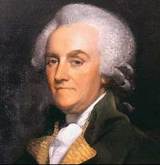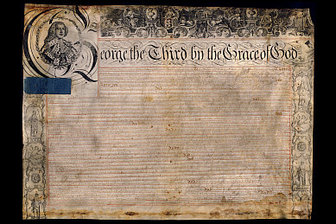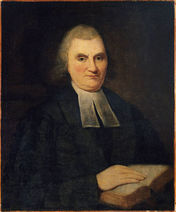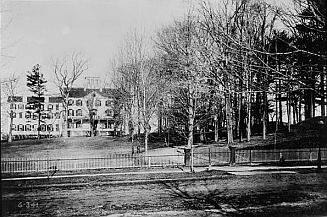History-- Path to Revolution
|
* Home
* History * Population * Government * Politics * Lobbyists * Taxes * State Symbols * Biographies * Economy * Employers * Real Estate * Education * Recreation * Restaurants * Hotels * Health * Environment * Stadiums/Teams * Theaters * Historic Villages * Historic homes * Battlefields/Military * Lighthouses * Art Museums * History Museums * Wildlife * Climate * Zoos/Aquariums * Beaches * National Parks * State Parks * Amusement Parks * Waterparks * Swimming holes * Arboretums More... * Gallery of images and videos * Fast Facts on key topics * Timeline of dates and events * Anthology of quotes, comments and jokes * Links to other resources |
* Native Americans * Exploration and Settlement * British colony * Royal governance * Path to Revolution * Revolutionary War * Industrialization * Civil War * Post-War Economy & Reform * Woodrow Wilson as Governor * World War I & 1920s * Great Depression * World War II * Post-War Development * 1960s & Richard Hughes * 1970s & Income tax * 1990s-Whitman & Florio * 9/11 & McGreevey Administration * Codey & Corzine * Chris Christie * Phil Murphy -- Military conflicts: King George's War and French and Indian War
The ethnic and regional divisions with New Jersey continued in the years leading up to the Revolution. Calls by Royal governors to support the British military in defending against Native American raids on the western frontier and against the French in the French and Indian War were opposed by pacifist Quakers in West Jersey, who ignored resolutions to provide men and money for the militia. In 1740, 300 New Jersey volunteers joined an expedition to attack Columbia during “The War of Jenkins’ Ear" (1739-1744), with most dying from combat and disease in the failed expedition. In 1744, during King George’s War (1744-1748) the New Jersey legislature appropriated money and raised 500 volunteers, soon called “Jersey Blues” because of the color of their uniforms, to assist New York in capturing the French fort at Crown Point, but the poorly organized effort was abandoned. In the French and Indian War, raids by Native Americans aligned with the French along the border on the Upper Delaware in 1755 provoked the muster of a thousand man regiment to garrison forts along the Delaware and to fight in New York. One detachment of the regiment was captured at Oswego in 1756, and another largely destroyed in a fight at Lake George in 1757. In the same year, another 300 surrendered to the French at Fort William Henry, with some massacred by the Native Americans. A 1758 truce with the Lenape ended raids into New Jersey, and the New Jersey troops helped General Jeffrey Amherst capture Montreal in 1760.  William Franklin. Image: Wikimedia Commons William Franklin. Image: Wikimedia Commons
-- Appointment of Governor William Franklin In 1764, William Franklin, the illegitimate but acknowledged 33-year-old son of Benjamin Franklin who had been raised with Franklin's other children in their home in Philadelphia, was named the Royal governor of New Jersey. The appointment primarily came through the influence of his father in cultivating relationships with government officials in London when the senior Franklin was posted there in 1757 (taking William along with him) representing the interests of the colonial assembly of Pennsylvania.  Appointment by King George III of William Franklin as Royal governor of New Jersey. Image: New Jersey State Archives Appointment by King George III of William Franklin as Royal governor of New Jersey. Image: New Jersey State Archives
Shortly after Franklin came to New Jersey as the new governor, the English Parliament enacted a ban on the future issue of paper money in the colonies, an act that undermined the growing economy and placed particularly severe burdens on New Jersey, which had come to rely to a high degree on the credit provided by paper bills. The government in London compounded the problem by passing tax measures such as the Stamp Act on newspapers and legal documents, moves which many New Jerseyans believed were in violation of the commitment from the proprietors that taxes would be levied only with the assembly’s approval. While the Stamp Act was soon repealed in the face of colonial protests, the English government rejected petitions from New Jersey to reinstitute paper money to alleviate the pressure on debtors.
|
|
The issue also brought a renewal of old class conflicts since many of the creditors aided by the fiscal policy were descendants of the proprietary landowners who maintained continuing influence in the judiciary and the legislature. Sparked by anger over debt and land claims, riots broke out in Newark during 1769 and 1770, and in January 1770 a mob seized the Monmouth County Court House to block the prosecution of debtors.
--Founding of College of New Jersey and Queen's College Governor Franklin’s efforts to pacify the situation were complicated by his conversion to the Anglican church, which was strongly opposed to the growing influence of Presbyterians in the colonies. Franklin sought repeatedly to assert control of the College of New Jersey at Princeton, the base of the Presbyterian opposition to the Royal government. Rejected by the College’s board of trustees, in 1766 Franklin granted a charter establishing the new Queen’s College at New Brunswick to compete with the influence of the faculty in Princeton. Queen’s College was intended to provide an alternative for education of the Dutch Reformed clergy, making a political coalition between the Presbyterians and the Dutch Reformed less likely. At this time, New Jersey had one of the most diverse religious profiles of all the colonies, with Presbyterians, Quakers, Anglicans, Baptists and Dutch Reformed all represented within the colony. |
|


